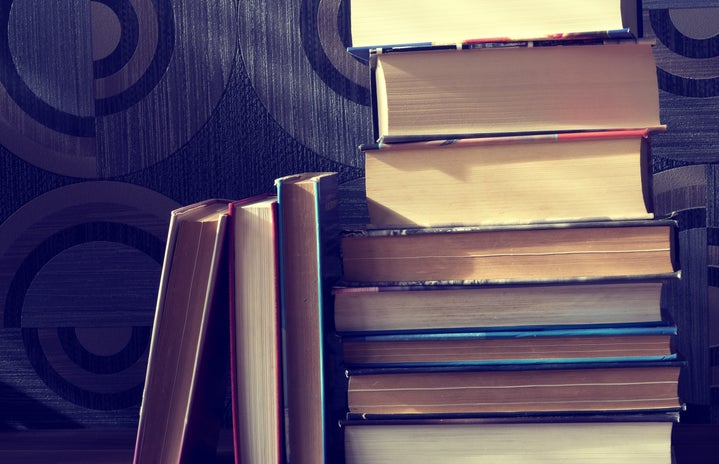One of the most rewarding feelings is when class material actually keeps me engaged. I know this makes me sound like a total nerd, but I’m sure we all can relate. From kindergarten to college we spend hours on end in classrooms, and after a while, words start to blend together and our brains become dull. It’s that one fact or story that disturbs the dullness and reminds us why education is necessary and enjoyable. For me, those experiences happen in history class.
The start of it all
The most memorable class I was in during my high school years was AP World History. That class was my jam. Learning about ancient civilizations, countries I’ve never been to and events that changed the world was interesting to me. We used the thickest textbook I had ever seen up to that point, and I remember feeling so satisfied when I finished reading a chapter. I was proud of my work for that class and enjoyed every second of the lessons. Out of all my classes, this was the class I performed the best in. I even did well on the AP test. I attribute that success to my love for the subject. I was hooked on history and there was no going back.
Unfortunately, my peers and family weren’t as enchanted. It’s no secret that more and more students turn to STEM and medical-related majors when they enter college. There’s job security, a great salary, and prestige to those types of majors and careers. Before arriving at UF, I knew no one who majored in history. I made the rational choice and stated biology as my intended major on my UF application. I had it in my head that I was going to be a pharmacist. UF is a great place for an aspiring pharmacist, and as my family always says, “people are always going to need drugs.” As I signed up for a 7:25 am Chem 1 class for my first semester, I tried to forget about how much I detested chemistry in high school. I naively thought that I would magically love science in college. Ah, young me, so hopeful yet so wrong.
My turning-point
A girl can only cry over her chemistry homework so many times before something has to give. It’s not that I didn’t understand the material and was failing the class (but let’s be honest, I wasn’t acing it either). I didn’t feel any satisfaction, and when I thought about dealing with acids and bases and atomic numbers for the rest of my life, I wanted to crawl inside a cave and stay there forever. I wasn’t paying crazy amounts of money on tuition to take classes I hate, so I decided to do a total 180 and switch my major to history. In my eyes, it was the total opposite of chemistry, and that’s what I wanted. At first, I thought the history major was going to be a temporary thing. I loved history so much, but majoring in it and having a history-related career one day seemed too good to be true. I’m happy to report that I’m still a history major three years later.
What’s so great about history?
Reading and writing are two of my favorite activities. Books have the ability to transport you to another world and writing provides an outlet for your creativity. History majors spend a majority of their time doing both. Granted, we aren’t reading Harry Potter or writing fan fiction, but good history books can take readers to another place, and the best part is that those places were real and those events actually happened. One of my favorite parts about history is the emphasis on primary sources or sources that come from the point in history you’re studying. Whenever I read primary documents, I always try to picture the author writing that piece all those years ago. He or she may have never imagined someone reading their work hundreds of years later. How mind-boggling is that! With all the reading and writing comes the lack of math problems needed to be solved. It’s a running joke that historians are terrible at math, and for me, it was not hard to say goodbye to my math skills. Sure, I can’t recite my times tables as quickly as I could when I was younger, but I get to constantly be doing two things I love, and need, to do.
Historians have research skills like no other. Give them a subject, and they can pull sources from libraries in all the universities, digital archives in the deepest corner of the Internet and physical archives all over the globe. Historians are like detectives. I’ve learned a great deal about research in my history classes, and let me tell you, those research skills can be used for more than just 17th-century French society. My ability to find everything the Internet has on a person, whether it’s my celeb crush Meghan Markle or a real-life crush, has heightened. It’s almost scary how much us history majors can find, but it’s always useful.
When I tell people that I’m a history major, I always get the “oh, so you want to be a teacher” remark back. Lots of history majors become teachers, but there are many other possible careers. Working for the U.S. State Department, private businesses, and publication houses are all options. Lots of history majors are planning on attending law school and becoming lawyers. Some of us, like myself, want to continue our history education into a Ph.D. program and become a professor. The career options are endless, so I’d say there’s plenty of job security.
One of the best ways to learn about the world we live in currently is to study the world as it was before us. So many events and decisions that occurred decades, even centuries ago impact us today. Here at UF, the history department is home to faculty with a variety of specialties. We have classes on everything from the American South to gender roles in modern China. Taking a wide range of classes has opened my eyes to life outside my personal bubble, and I believe that I’m a better citizen because of it.
Give it a shot
If you have never taken a history class at your university before, I highly recommend doing so. The biggest reason why I’m proud to be a student at UF is that I adore my major so much. David McCullough, a two-time winner of the Pulitzer Prize, once said that “History is who we are and why we are the way we are.” I couldn’t agree more, and that’s why I love studying it.


